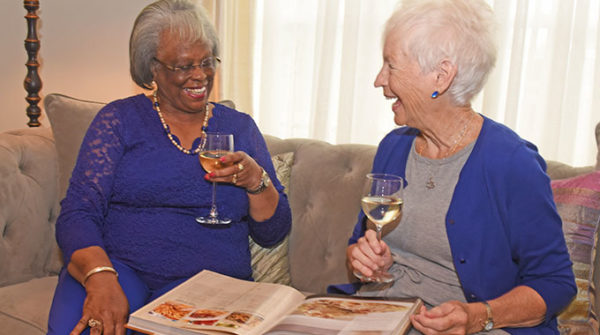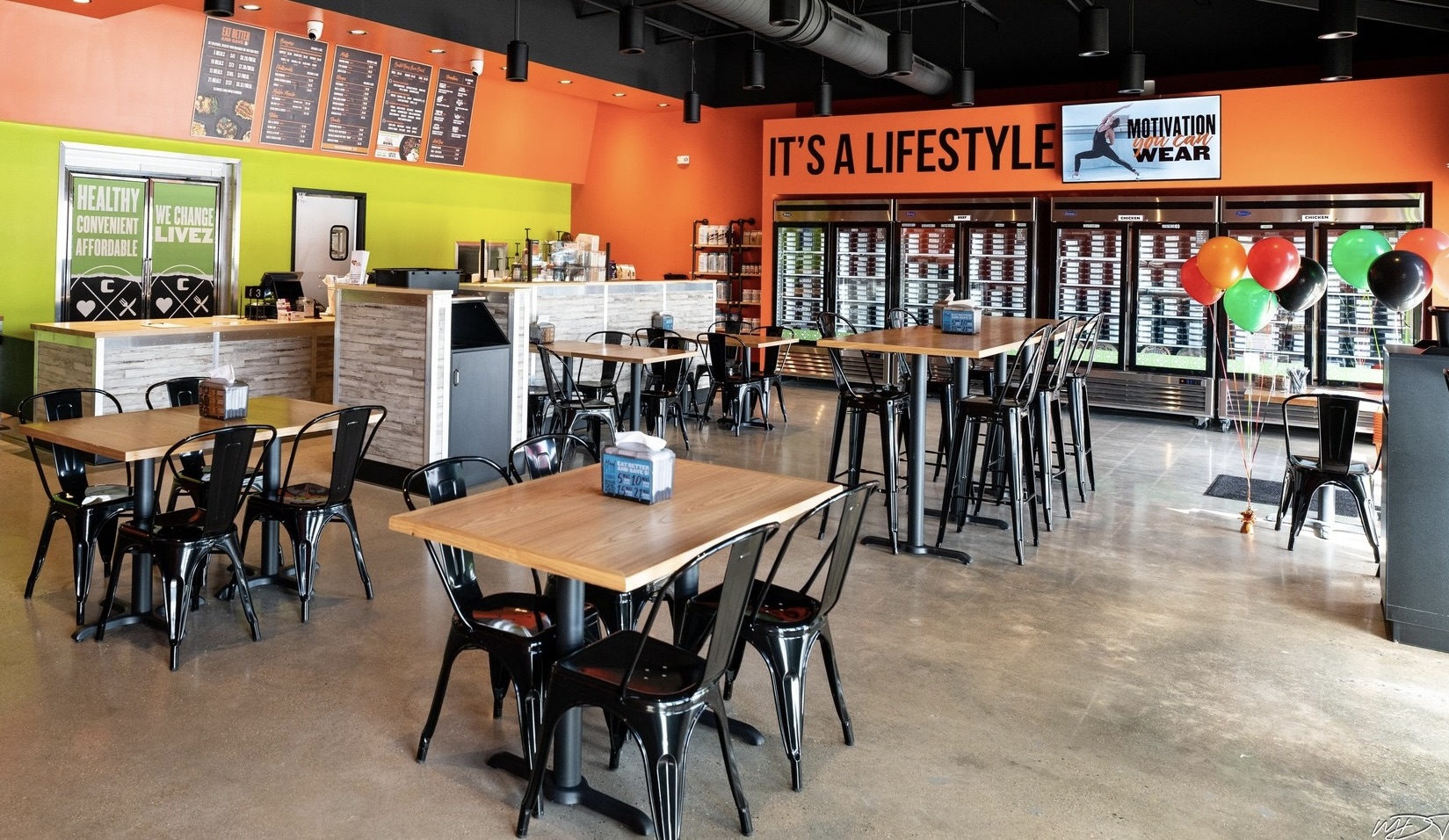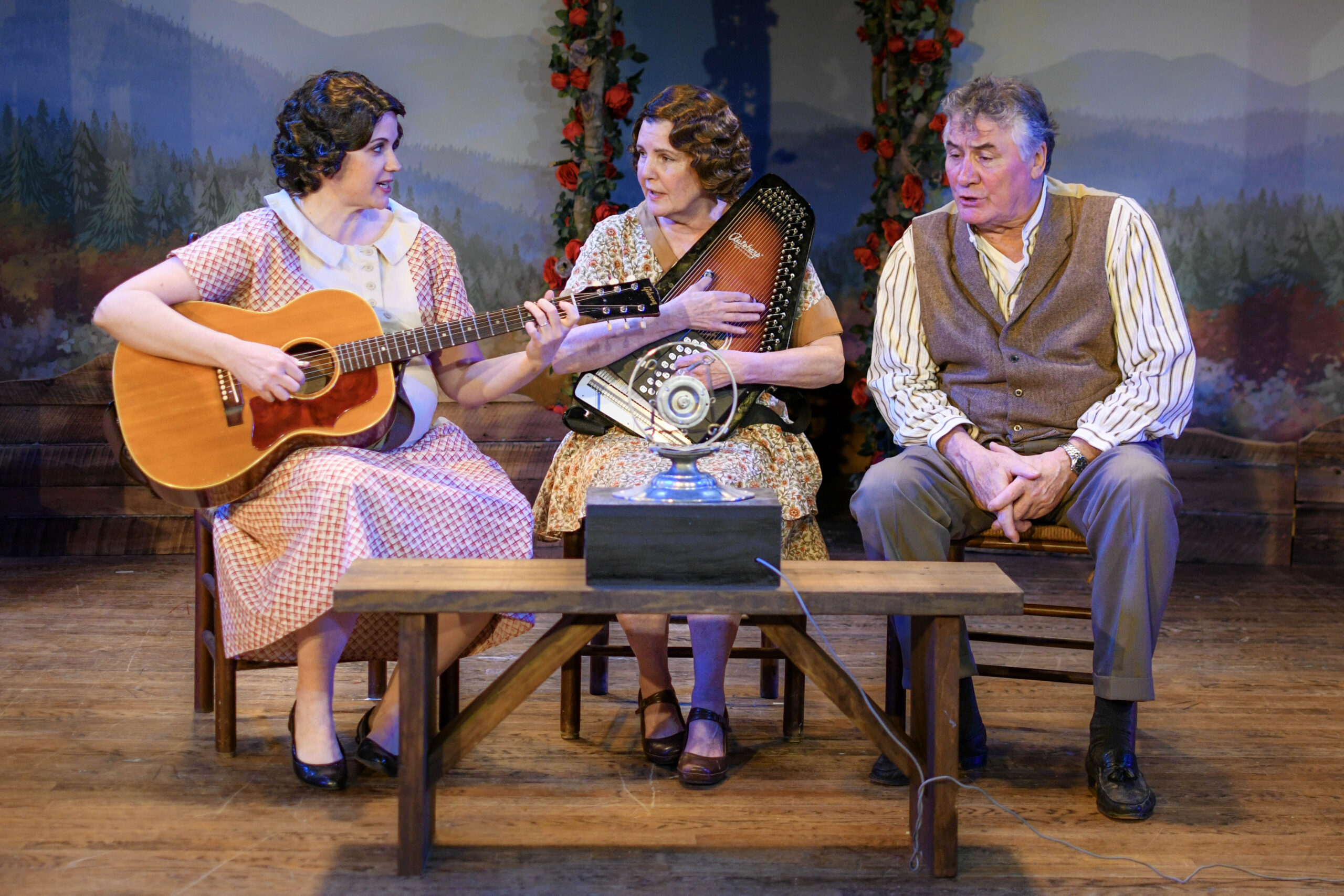Socialization is important for everyone — from age one to 101. As senior citizens age, they may find themselves lacking social opportunities at home, or feeling isolated from family and friends if they live alone. This will often lead to feelings of loneliness and depression and can even cause physical or cognitive challenges. One of the many benefits of living in a senior living community is the socialization it offers community members. Senior living facilities encourage new social connections in a communal environment and offer a plethora of enrichment activities for residents.
Senior living communities, or retirement communities, provide senior adults with a safe place to be themselves – with plenty of social spaces and activities to spend time with friends and family members. Daily activities and opportunities to meet people allow seniors to form new connections and avoid the isolation often associated with aging at home.
The benefits of socialization in senior living include reduced stress, increased self-worth, and a positive impact on overall happiness. The other benefits of social interaction for the elderly living in independent or assisted living communities include:
- Reduced risk of health problems, including cardiovascular symptoms, some cancers, osteoporosis, and arthritis
- Reduced risk of developing Alzheimer’s disease
- Lower blood pressure
- Alleviation of mental health issues, depression, and anxiety
- Reduced stress which lowers high blood pressure
- Improved physical and mental health
Increased feelings of belonging
Maintaining physical wellness, ba good diet, getting exercise, and practicing balance and flexibility training are highly important for seniors – but so is socialization. And it’s often not always the focus if a loved one lives alone or has medical problems. As adults get older, there is a natural tendency to become less active. Over time, seniors may settle into an inactive routine or grow increasingly sedentary. When they choose to live at a senior living facility, there is a strong support system in place to combat this tendency — whether it’s friends who live next door or dedicated staff who encourage participation in activities, exercise classes, or simply making a friend at mealtime.
Fast-Growing Demographic
Seniors are one of the fastest-growing age demographics in America, due to increased longevity and higher quality healthcare. Fortunately, as more adults reach their golden years, senior living facilities have put an emphasis on offering more social activities. From outings and happy hours to life-enriching amenities, there are plenty of options for seniors to choose from. Social activities at senior living communities that are proven to improve mental, physical, and social health for seniors include:
- Exercise classes and walking groups
- Social outings and scheduled events or trips
- Monthly phone calls or visits with friends and family
- Bingo, card games, and other mentally stimulating games
- Swimming and water aerobics classes
- Arts and crafts
- Book clubs
- Holiday parties
For many older adults who live alone, living a socially active life can feel like an uphill battle. Location, distant family, or recently lost loved ones can be a huge obstacle to staying active or forming important connections. More seniors are choosing to live in senior living communities because of benefits like:
- Social programming focused on enrichment and mental well-being
- Communal meal times
- Opportunities for group exercise
- A close-knit community feeling
Active living is a critical component of seniors maintaining their overall health and well-being. Senior living communities make it easy for residents to remain socially engaged so they can enjoy happier, healthier, and more vibrant lifestyles.

 Derrick Kendall joined Lucy Corr, a Continuing Care Retirement Community in Chesterfield, Virginia in March 2014 as chief executive officer. Mr. Kendall currently serves as chair of the Virginia Health Care Association’s Board of Directors and as previous past chair of its Regulatory Committee. A nurse assistant, he was honored as the Virginia Nursing Facility Administrator of the year in 2013 and has twice been appointed to the Virginia Board of Long-Term Care and Assisted Living Administrators.
Derrick Kendall joined Lucy Corr, a Continuing Care Retirement Community in Chesterfield, Virginia in March 2014 as chief executive officer. Mr. Kendall currently serves as chair of the Virginia Health Care Association’s Board of Directors and as previous past chair of its Regulatory Committee. A nurse assistant, he was honored as the Virginia Nursing Facility Administrator of the year in 2013 and has twice been appointed to the Virginia Board of Long-Term Care and Assisted Living Administrators.







